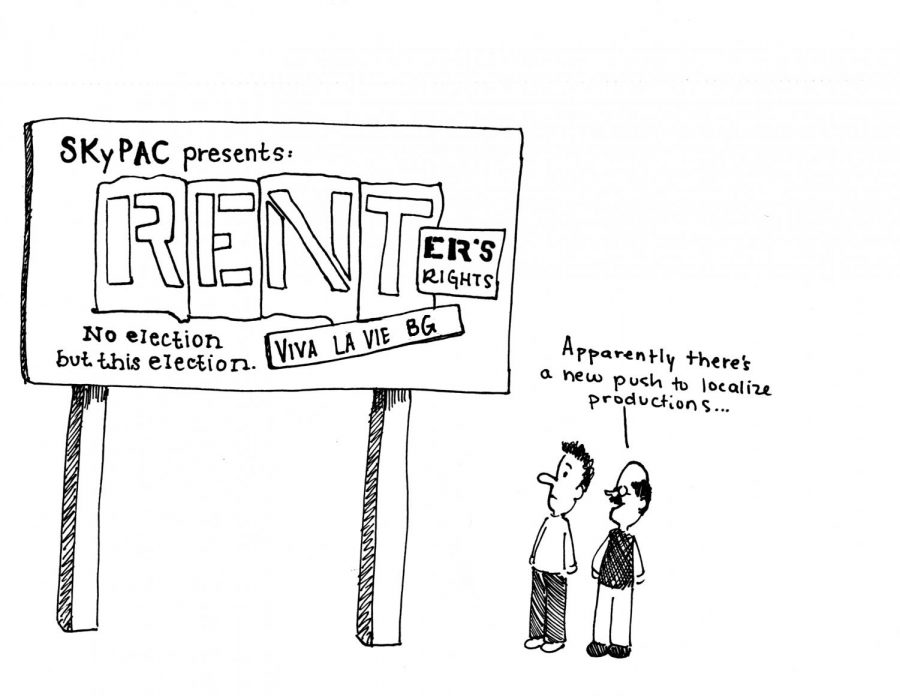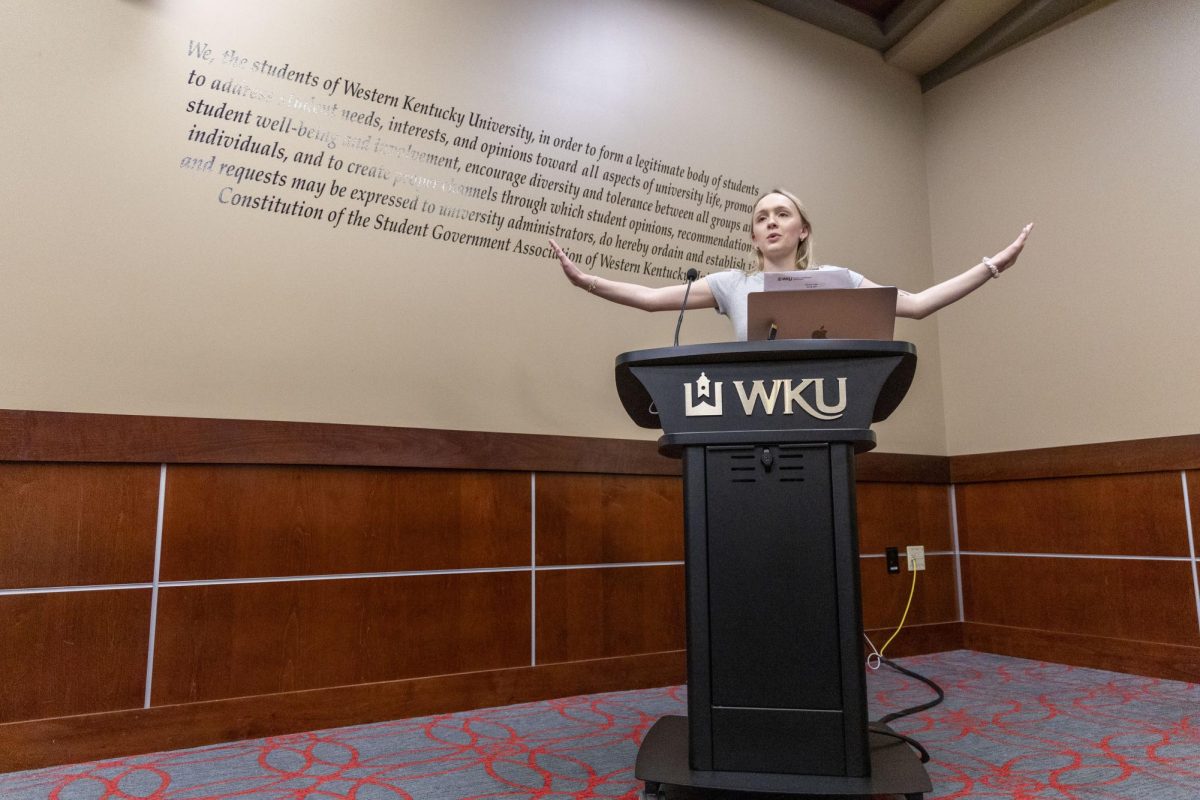EDITORIAL: Bowling Green must pass URLTA
October 24, 2016
The Issue: After continued years of lobbying efforts, Bowling Green has still not passed the Uniform Residential Landlord and Tenant Act (URLTA).
Our Stance: The city’s continued failure to pass the act is an affront to ensure safe housing for both tenants and landlords alike. Several other smaller cities in Kentucky have passed URLTA, leaving Bowling Green in the dust. To ensure its passage, we have to vote for city commission candidates who support its passage.
Back in 2008, then mayor of Bowling Green Elaine Walker, held forums about URLTA in hopes that the city would consider passing the law. Eight years later, Bowling Green has still not taken a stance in favor of protections for tenants and landlords.
Before we start pointing fingers at the city for its unwillingness to protect people from “retaliatory evictions” and leaving them on the streets, we have to take a look at the history of URLTA in the state.
URLTA was first enacted by the Kentucky State Legislature in 1974, according to the National Low Income Housing Coalition. Originally, the act’s scope was limited to Lexington and Louisville. The two cities fall into a state category known as First Class Cities.
Fast forward nine years and the Supreme Court of Kentucky struck down URLTA, but in 1984 they later readopted the act with the provision that “gave jurisdictions the choice to opt in to implementing the legislation.”
We can only imagine this kind of turnaround from the court is something Gov. Matt Bevin eagerly awaits every time he snaps a selfie.
Currently, the jurisdictions which have URLTA are: Barbourville, Bellevue, Bromley, Covington, Dayton, Florence, Lexington-Fayette County, Georgetown, Louisville-Jefferson County, Ludlow, Melbourne, Newport, Oldham County, Pulaski County, Shelbyville, Silver Grove, Southgate, Taylor Mill and Woodlawn, according to the Legal Aid Network of Kentucky.
Even more recently, the city of Morgantown passed URLTA. Not to drag Morgantown, but they voted to allow the legal sale of alcohol in the city just back in September. As the Beech Tree News reported, it marks the first time since 1942 a “community in Butler County will be able to legally sell alcoholic beverages.”
Morgantown city government struggled more with the legal sale of alcohol, some 80 years after the ratification of the 21st Amendment, than they did with guaranteeing protections for tenants and landlords in the city.
Let’s talk briefly about these protections that URLTA offers. URLTA serves to “encourage landlords and tenants to maintain and improve the quality of housing and clarify the rights and obligations of landlords and tenants.”
Some of the protections include a standard of habitability which, according to the National Low Income Housing Coalition, provides tenants legal resources to remedy unsafe and unsanitary housing conditions. URLTA also protects tenants by requiring landlords to give a 48 hour notice before entering a property.
On the landlord side of the coin, URLTA provides a uniform and speedy eviction process, it also requires tenants to pay rent on time, maintain their unit and abide by basic health and safety guidelines.
Tenants and landlords alike benefit from URLTA provisions, so what’s the hold up? It can be anything from misconceptions about URLTA wanting to completely do away with landlords, as Jay Todd Richey, founder and chair of the WKU Student Coalition for Renters’ Rights, has said. Or on a local level, it’s opposed by landlords and property managers, as the Daily News reported back in 2013.
The passage of URLTA often falls in the hands of Bowling Green city commissioners. However, current commissioners have publicly opposed passage of URLTA, which is troubling because the owner-occupied housing unit rate from 2010 to 2014 for Bowling Green is 38.8 percent, meaning a large number of people who live in the city are renters.
It’s not only city commissioners who have turned their backs on the city. Mayor Bruce Wilkerson has also been vague when describing flaws within URLTA.
Wilkerson told the Daily News earlier this month he found some provisions within URLTA “troubling,” such as having to adopt the act in its entirety as opposed to crafting a local alternative. That’s a good point; why bother ensuring protections for tenants and landlords alike when you can make it look like you’re just trying to do what’s in the best interest of the city?
But if that were actually the case, URLTA would have been passed long ago.
Even if you look past the legal protections URLTA offers tenants and landlords, the argument can also boil down to one of ensuring human rights. Article 25 of the United Nations Declaration of Human Rights states that everyone has the right to “a standard of living adequate for the health and well-being of himself and of his family, including food, clothing, housing … ”
We cannot claim Bowling Green adheres to this standard of living when you have students such as Jasmine Routon, who in February of last year, told a Herald reporter she experienced roach infestations, black mold and strange men inside the apartment she was renting.
Luckily, Bowling Green voters have the chance to finally pass URLTA with this year’s city commission race.
According to survey responses of city commission candidates from Kentuckians for the Commonwealth, Andrew Manley, Nate Morguelan and Ryan Fulkerson support the passage of URLTA. Other candidates either did not respond at all or gave non answers.
Bowling Green voters should not consider voting for candidates who either do not respond to or give non answers to whether or not the city should ensure the basic human rights of tenant and landlord alike.













